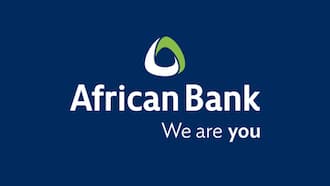What is a title deed, and how many types are there in South Africa?
A title deed, also known as a property deed or a deed of ownership, is a legal document that serves as proof of ownership for a piece of real property. Real property typically includes land and any permanent structures or improvements on the land, such as buildings, houses, and other physical assets.
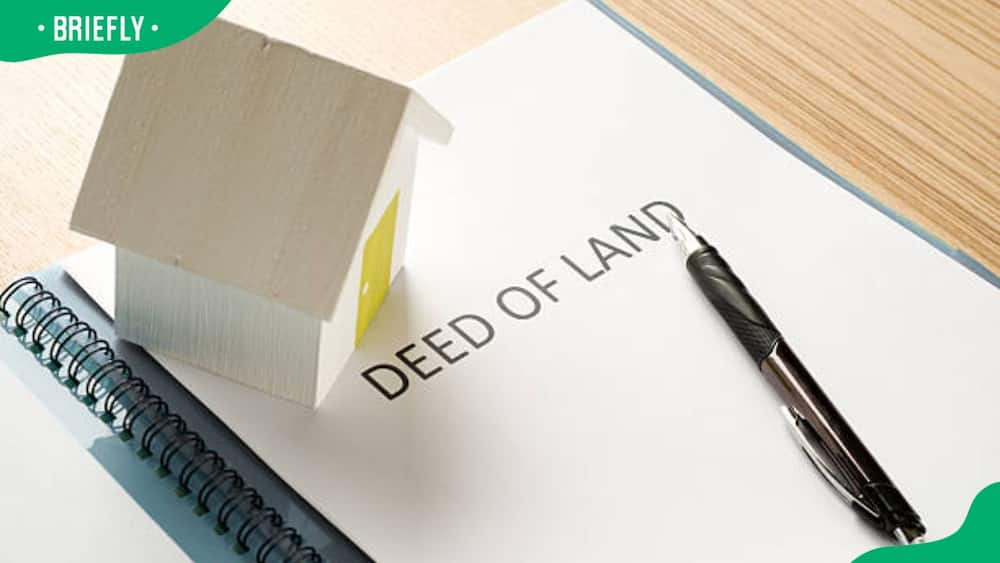
Source: UGC
The title deed is essential for establishing ownership rights, protecting against property disputes, and ensuring the property's transferability in future transactions. It is also a crucial document for obtaining financing or loans secured by the property.
Components of a title deed
The specific components of a title deed can vary based on local regulations and the particular details of the property, but they generally include the following key elements:
- Property description: The deed will describe the property in detail, including its boundaries, location, and size.
- Grantor and Grantee: The grantor is the person or entity transferring ownership (seller), and the grantee is the person or entity receiving ownership (buyer).
- Consideration: This section specifies the amount paid for the property or other considerations exchanged as part of the transfer.
- Legal description: The deed may include a legal description of the property, which often uses metes and bounds, lot numbers, or other surveyor-defined methods.
- Easements and restrictions: Title deeds may note any easements, restrictions, or encumbrances on the property, such as rights of way, zoning regulations, or covenants.
- Signatures: The deed typically requires the signatures of both the grantor and grantee to be legally valid.
- Notary acknowledgement: Deeds are often notarized to ensure their authenticity and legality.

Source: UGC
Types of title deeds in South Africa
In South Africa, various types of title deeds are used to represent property ownership and rights. The specific type of deed used can depend on the property's circumstances and nature. Here are some of the common types:
Freehold
This is the most common type of title deed. It represents full property ownership, including the land and any improvements, such as a house. The property owner has complete control and can use, modify, or sell the property as they see fit.
Sectional
This is associated with properties in multi-unit developments, such as apartment buildings or townhouses. Owners in such developments hold a section of the property and share common areas, such as the building's exterior, common facilities, and land. They have individual title deeds for their sections.
Leasehold
In a leasehold arrangement, the property is leased from a landowner or the government for a specified period. Leasehold title deeds represent the leasehold interest and may have conditions or restrictions.
Bare ownership
This represents property ownership without the right to use or occupy it. It is often associated with estate planning and may involve separating the right to use the property from owning it. It can be used in succession planning or asset protection.

Source: UGC
What are the 2 types of property ownership in South Africa?
In South Africa, there are two primary types of property ownership. These are freehold property ownership and sectional title ownership.
What is the difference between a title deed and a deed of transfer in South Africa?
The title deed is the document that provides evidence of property ownership and contains important information about the property. The deed of transfer is the document that facilitates the actual transfer of ownership from one party to another in a property transaction.
What is a title deed for a house in South Africa?
A title deed for a house in South Africa is a legal document that provides proof of ownership and essential information about the property and its ownership history. The South African government issues this document, and it is an integral part of property ownership and transactions in the country.
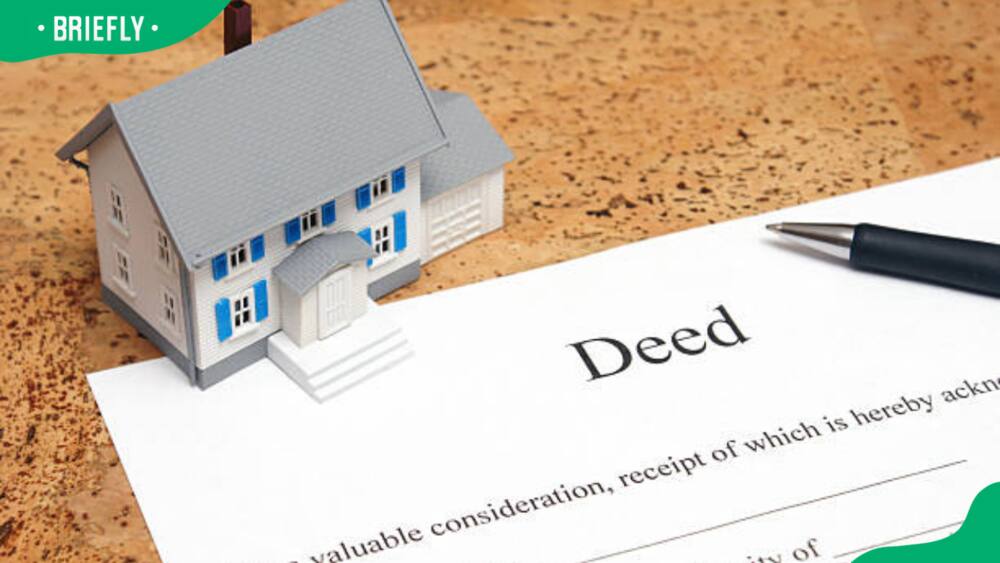
Source: UGC
What does an original title deed look like in South Africa?
The appearance and format of an original title deed in South Africa can vary depending on the era in which it was issued, the jurisdiction, and any subsequent updates or modernization efforts. However, there are some common features and information typically found on an original title deed in South Africa:
Cover
An original title deed may be bound in a cover or folder for protection. The cover might include the name of the relevant Deeds Office, the South African coat of arms, and other official markings.
Title deed number
Each title deed is assigned a unique reference number, which is used for identification and record-keeping.
Property information
The deed contains detailed information about the property, such as its physical address, size, and legal description.
Ownership details
The names and details of the property owner(s) and any joint ownership or marital status information are provided.
Easements and restrictions
Any easements, servitudes, or restrictions on the property are typically recorded in the deed. These may include rights of way, utility access, and zoning regulations.
Encumbrances
Mortgage information, liens, or other encumbrances affecting the property's title may be included.
Purchase price and date
The deed may indicate the purchase price paid for the property and the date of acquisition.
Signatures
The document is typically signed by the conveyancer or attorney who prepared it. It often includes the signatures of the property owner(s) or those authorized to act on their behalf.
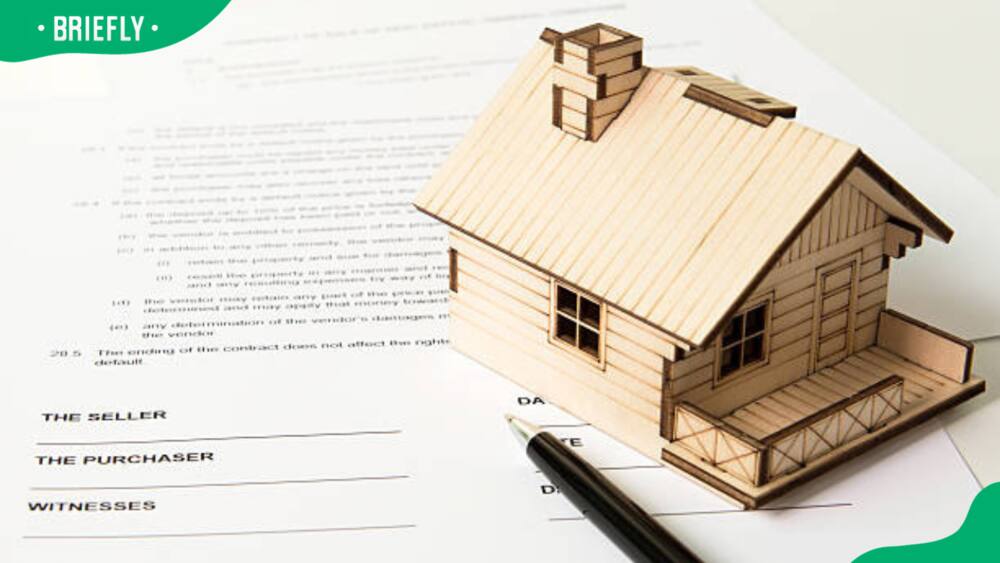
Source: UGC
Stamp duty
Stamp duty, a tax on property transactions, may be paid and recorded on the deed.
Official seals and stamps
The deed may bear the seal or stamp of the relevant Deeds Office, indicating that it has been registered and is an official document.
Notary acknowledgement
Some deeds may include a notary acknowledgement, indicating that the signatures and details in the document have been verified and notarized.
Registration information
Details about the registration date and location (the specific Deeds Office) are included.
Examples of property rights in South Africa
In South Africa, property rights are protected under the Constitution and various laws. Property rights encompass different property use, enjoyment, and disposition rights. Here are some examples of property rights in South Africa:
Ownership
Property owners have the right to buy, own, and sell real and personal property, which includes land, houses, businesses, vehicles, and personal possessions.
Use and enjoyment
Property owners have the right to use and enjoy their property as they see fit, subject to reasonable regulations and laws. This includes living in and maintaining a house, using land for agriculture, or using a business property for commercial purposes.
Exclusion
Property owners can exclude others from their property without permission, except in certain circumstances defined by law, such as court-ordered access or easements.
Income and benefit
Property owners can earn income from their property, whether renting it out, using it for business, or selling it for a profit.
Inheritance
Property owners have the right to bequeath their property to heirs or beneficiaries through a will or other legal means.
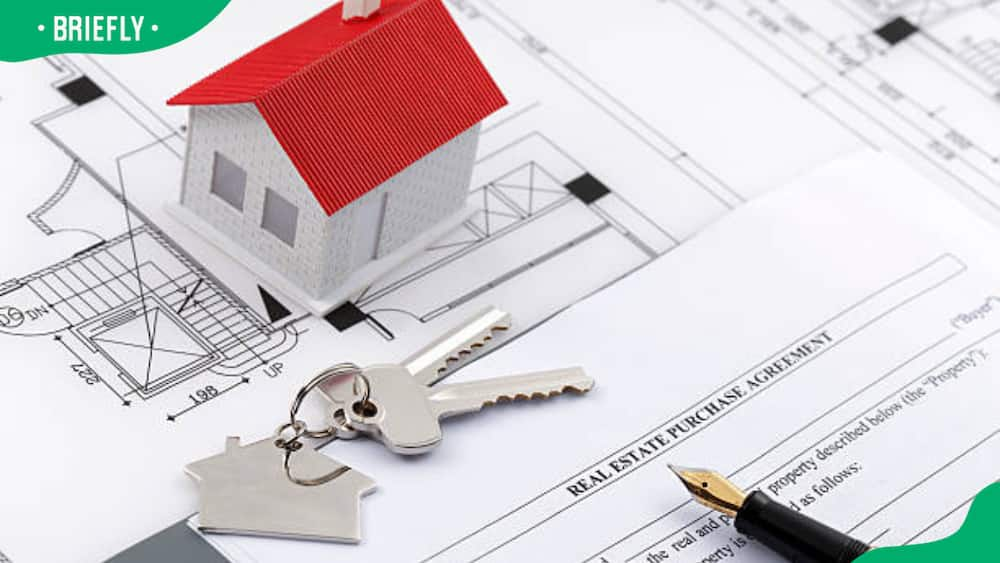
Source: UGC
Security
Property owners have the right to expect that their property will not be arbitrarily seized or taken away by the government without just compensation and due process of law.
Easements and servitudes
Property owners can grant or receive easements or servitudes on their property, allowing others to use it for specific purposes, such as utility access or right of way.
Mineral and water rights
Property owners can own and exploit mineral and water resources on their land, subject to relevant regulations and licenses.
Leasehold rights
Leaseholders have the right to possess, use, and enjoy the property under a leasehold agreement for the duration specified in the lease contract.
Intellectual property
Property rights also extend to intellectual property, such as patents, copyrights, trademarks, and trade secrets, allowing the creators to control and benefit from their creations.
Community land rights
In certain areas, communal land rights may be recognized, allowing groups or communities to own and manage land and natural resources collectively.
Types of housing in South Africa
South Africa features a diverse range of housing types due to its varied social and economic landscape. These housing types cater to different income levels, lifestyles, and housing needs. Here are some common types of housing in South Africa:
RDP Houses (Reconstruction and Development Programme Houses)
RDP houses are government-subsidized, low-cost housing units provided to low-income South Africans as part of the government's housing and poverty alleviation efforts. These houses are typically small, basic units constructed with essential amenities like water, electricity, and sanitation.
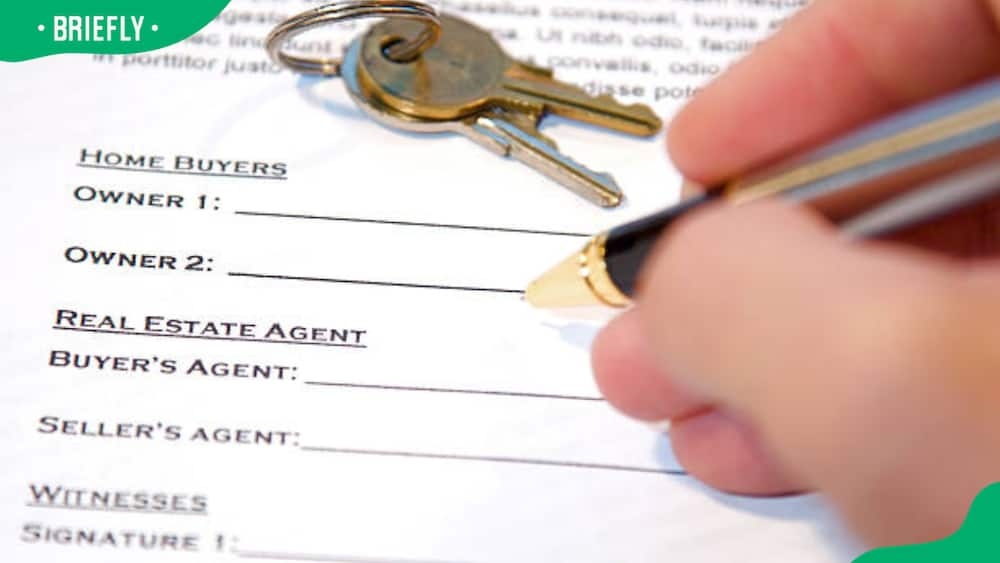
Source: UGC
Informal settlements
Informal settlements consist of makeshift, unauthorized dwellings. These settlements lack essential services and infrastructure, and the residents often live in challenging conditions. The government has initiated upgrading programs to improve living conditions in some informal settlements.
Townhouses
Townhouses are multi-unit residential properties, usually in rows or small complexes. They can range from basic to upscale and are prevalent in urban and suburban areas.
Flats or apartments
Flats and apartments are multi-story buildings with individual housing units. They are common in urban areas and can vary in size and luxury, from affordable housing units to high-end penthouses.
Duplexes and Semi-Detached Houses
Duplexes are two-unit buildings where each unit has its separate entrance. Semi-detached houses share a common wall between two different homes. They provide more privacy and space than apartments.
Gated communities
Gated communities comprise various housing types (stand-alone houses, townhouses, or apartments) within a secure, often privately managed, complex. They offer amenities such as security, communal facilities, and landscaping.
The title deed is an essential legal document for establishing and recording property ownership and related rights. Property owners should keep their title deeds in a secure location and ensure they are up-to-date in case of future property transactions or disputes.
DISCLAIMER: This article is intended for general informational purposes only and does not address individual circumstances. It is not a substitute for professional advice or help and should not be relied on to make decisions. Any action you take upon the information presented in this article is strictly at your own risk and responsibility!
READ ALSO: How to check title deeds in South Africa: meaning and offices
Briefly.co.za recently published an article on how to check title deeds in South Africa. A title deed is one document any landowner should have to prove land ownership. One should learn to check title deeds to verify this legal document's authenticity. The process may differ depending on your area of residence in South Africa.
Source: Briefly News







